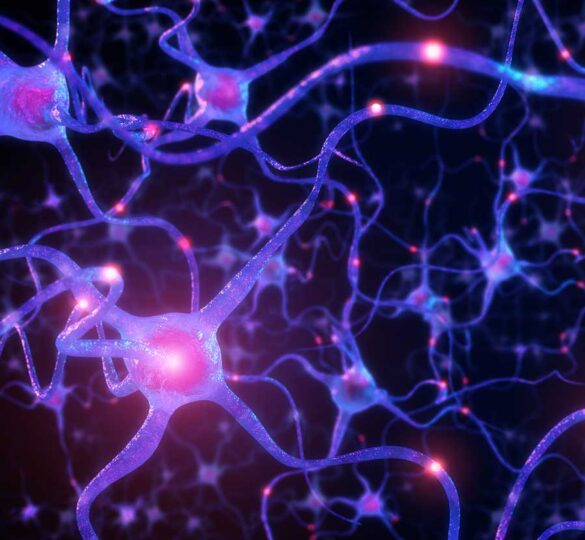GRF Holds Catalyst Meeting: Solving Neurodegeneration
Neurodegeneration occurs when neurons — the building blocks of the central nervous system — deteriorate and die, eroding essential capabilities, such as vision or cognition.

Neurodegeneration is a condition common to many diseases, both congenital and age-related, and to acute injury and trauma. Even as disease prevalence increases, treatments that protect, repair or regenerate neurons and their pathways remain elusive.
In April 2021, Glaucoma Research Foundation was proud to partner with BrightFocus Foundation and the Melza M. and Frank Theodore Barr Foundation, Inc. to sponsor a two-day “think tank” style catalyst meeting titled “Solving Neurodegeneration.”
Over 20 experts with active research programs in glaucoma, macular degeneration, Alzheimer’s disease, and other neurodegenerative disorders gathered virtually to identify major barriers to solving neurodegeneration and regeneration and to discuss key opportunities and even potential breakthrough ideas.
By challenging conventional wisdom, the participants agreed that new treatments will arise by comparing mechanisms of progression across diseases and conditions and by identifying the common elements that impede translation of laboratory findings to the clinic.
The format of the meeting consisted of brief presentations by the participants focusing on new, unpublished results and outside-the-box ideas and proposals. Each of four sessions of presentations was followed by break-out room discussions summarizing the most promising findings and opportunities for discovery. Presentations included novel research on inflammation, genetics, metabolic and oxidative stress, as well as new approaches to treatments involving stem cell and organoid transplantation, gene therapy, and drug discovery.
Program Chair David Calkins, PhD, who also chaired the Catalyst for a Cure scientific advisory board in 2021, noted that many of the participants believe the answer to solving neurodegeneration lies in conducting collaborative research that combines expertise from many disciplines and approaches across diseases.
In March 2022, much of the content of the meeting appeared in a point paper that summarizes the most important common elements that characterize progression in neurodegeneration and our best hope for new therapies to help patients with these devastating diseases.
First posted on September 1, 2021; Reviewed and updated on August 9, 2022